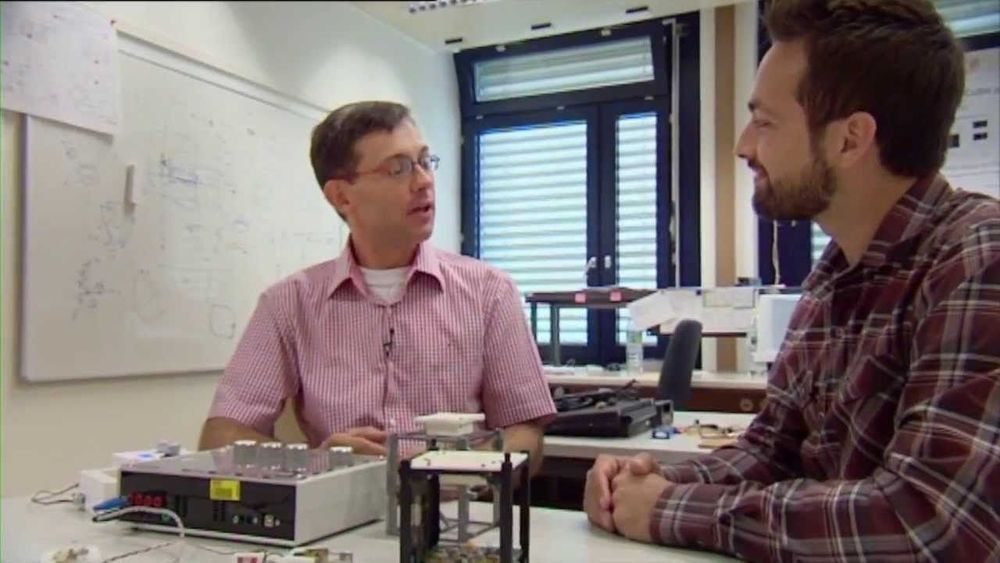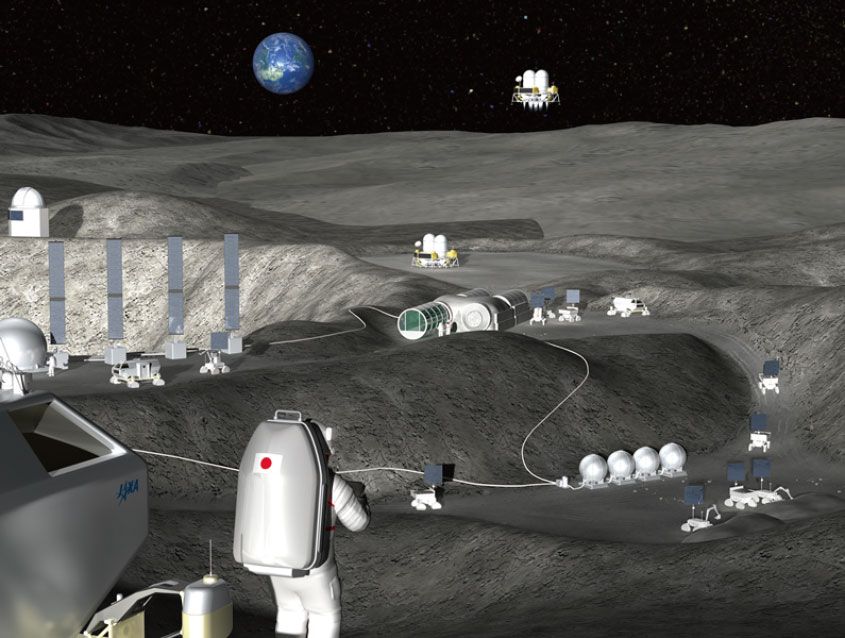Page 8972
Apr 7, 2019
Forever young: study uncovers protein that keeps skin youthful
Posted by Paul Battista in category: life extension
Beauty might only be skin deep, but for those wondering how to keep that skin young, scientists may have found an answer in the form of a protein that encourages cell competition.
The prosaically named COL17A1 might not sound like a fountain of youth, but the new study suggests it does the heavy lifting when it comes to keeping skin intact and unimpaired.
The protein works by encouraging cell competition, a key process to maintain tissue fitness. That effectively “drives out” weaker cells while encouraging replication of stronger ones.
Continue reading “Forever young: study uncovers protein that keeps skin youthful” »
Fresh interview with Aubrey de Grey
What is ageing? We can define ageing as a process of accumulation of the damage which is just a side-effect of normal metabolism. While researchers still poorly understand how metabolic processes cause damage accumulation, and how accumulated damage causes pathology, the damage itself — the structural difference between old tissue and young tissue — is categorized and understood pretty well. By repairing damage and restoring the previous undamaged — young — state of an organism, we can really rejuvenate it! It sounds very promising, and so it is. And for some types of damage (for example, for senescent cells) it is already proved to work!
Today in our virtual studio, somewhere between cold, rainy Saint-Petersburg and warm, sunny Mountain View, we meet Aubrey de Grey, again! For those of you who are not familiar with him, here is a brief introduction.
Apr 7, 2019
My full interview on LONDON REAL Podcast
Posted by Paul Battista in category: neuroscience
Apr 7, 2019
500,000 Pieces of Space Junk Are Traveling at 17,500 MPH Around Earth [VIDEOS]
Posted by Victoria Generao in categories: space, transportation

More than 500,000 pieces of debris, or “space junk,” are tracked as they orbit the Earth. They all travel at speeds up to 17,500 mph, fast enough for a relatively small piece of orbital debris to damage a satellite or a spacecraft. If that sounds dangerous, that’s because it it is. The rising population of space debris increases the potential danger to all space vehicles, but especially to the International Space Station, space shuttles and manned spacecraft. NASA takes the threat of collisions with space debris seriously and has a long-standing set of guidelines on how to deal with each potential collision threat.
Apr 7, 2019
Video Games Predict Soldiers of the Future: The All-Seeing, Indomitable, Walking Tank
Posted by B.J. Murphy in categories: entertainment, military
Want to imagine the soldier of the future? A look at video game super-soldiers gives you an ideal glimpse of the desired improvements.
As a US Army military veteran and a longtime gamer, I can attest that while being a soldier and playing one in a video game are very different experiences, there exist several functional overlaps in the goals and tools provided to achieve objectives.
For example, examine the differences and similarities between playing basic training in a game like America’s Army, and enduring an actual enlistment. America’s Army is designed to teach prospective soldiers what to expect both in training and actual combat. While the game version does not nearly prepare a player for the physical and psychological demands of actual basic training and participating in what Army operations entail, it does give an understanding of the objectives one would be expected to accomplish while in service and some of tools available to achieve those goals.
Apr 7, 2019
Photons Over ‘Optical Fiber Obstacle Course’ Could Improve Cyber Security
Posted by Genevieve Klien in categories: business, cybercrime/malcode, quantum physics

The new approach supports the development of quantum key distribution, a technology both businesses, and governments are very excited about.
Apr 7, 2019
Can Robots Build a Moon Base for Astronauts? Japan Hopes to Find Out
Posted by Klaus Baldauf in categories: robotics/AI, space travel
Japan’s space agency wants to create a moon base with the help of robots that can work autonomously, with little human supervision.
The project, which has racked up three years of research so far, is a collaboration between the Japan Aerospace Exploration Agency (JAXA), the construction company Kajima Corp., and three Japanese universities: Shibaura Institute of Technology, The University of Electro-Communications and Kyoto University.
Recently, the collaboration did an experiment on automated construction at the Kajima Seisho Experiment Site in Odawara (central Japan).
Continue reading “Can Robots Build a Moon Base for Astronauts? Japan Hopes to Find Out” »
Apr 7, 2019
Will we win the battle against cancer?
Posted by Paul Battista in categories: biotech/medical, genetics, life extension
This article opened with some fearful figures about cancer and its effect on people worldwide. But there’s reason to hope.
While the total number of new cancer cases and deaths continues to increase, the rates of cancer diagnoses and deaths decline each year — as absolute figures don’t account for rises in life expectancy, population growth, or aging populations. We’ve made great strides in understanding the disease and its various genetic and environmental origins. And events like Breast Cancer Awareness Month continue to educate the populace about the preventative measures available to them.
Thanks to scientists like those at the University of Basel in Switzerland, we may have more reasons to be hopeful very soon.
Apr 7, 2019
Why Your Brain Hates Slowpokes
Posted by Xavier Rosseel in categories: evolution, health, internet, neuroscience
“Why are we impatient? It’s a heritage from our evolution,” says Marc Wittmann, a psychologist at the Institute for Frontier Areas of Psychology and Mental Health in Freiburg, Germany. Impatience made sure we didn’t die from spending too long on a single unrewarding activity. It gave us the impulse to act.
Not long ago I diagnosed myself with the recently identified condition of sidewalk rage. It’s most pronounced when it comes to a certain friend who is a slow walker. Last month, as we sashayed our way to dinner, I found myself biting my tongue, thinking, I have to stop going places with her if I ever want to … get there!
You too can measure yourself on the “Pedestrian Aggressiveness Syndrome Scale,” a tool developed by University of Hawaii psychologist Leon James. While walking in a crowd, do you find yourself “acting in a hostile manner (staring, presenting a mean face, moving closer or faster than expected)” and “enjoying thoughts of violence?”
















